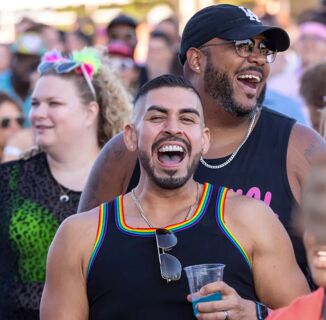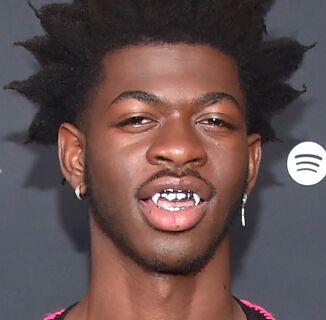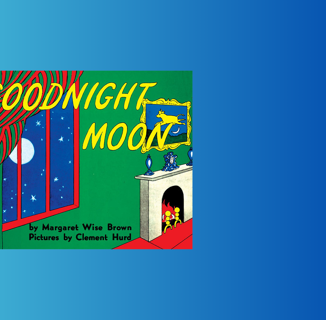A stream of black smoke rose above a building three blocks ahead. People of all ages and backgrounds surrounded me. It was May 1, 2018 and thousands were gathered in the streets of Paris. Union members carried signs and shouted into microphones. The black bloc surged faithfully ahead. Glass from the windows of a nearby McDonald’s crunched beneath boots and sneakers.
“There’s the tear gas,” an American shouted.
I heard screams as canisters shot down from the sky, streaming gray gas as they hit the streets or people. The crowd pulled out their scarves and masks. Coughing fits began. I spat into my bandana as a hot feeling spread through my throat. Suddenly I was taken back to the images of Ferguson– milk being poured into the eyes of protesters and street kids lobbing back canisters of tear gas at police – that I’d been so viscerally affected by in 2014.
During my senior year of college, the photo of Michael Brown in front of Canfield Apartments woke me up like never before. Within months, I was leading protests on my campus, thinking about Huey Newton’s notion of Revolutionary Suicide, and traveling to Ferguson to join the growing movement in the streets. It was that year that I stood face to face with riot police and learned of James Baldwin for the first time.
Then the more that I experienced the world as a black college graduate, the more I realized I didn’t want to be “integrated into a burning house” as Baldwin wrote in The Fire Next Time. If I wanted to live my politics as dearly as I had in the year following Michael Brown’s death, I had to make a big choice to propel me in the right direction. This is how I decided to go to Paris for the first time in 2016 during Nuit Debout.
The chaos around me was all too similar to that of the ending scene of The Dreamers, a 2003 film directed by Bernardo Bertolucci, that had been my own introduction to the political upheaval in Paris during May 1968. Just before the credits roll, riot police stream towards the viewer in slow motion, in a disorienting depiction of what someone might see if injured while running away during a demonstration.
The main character, Matthew, is an American student living in Paris when he meets Parisian sibling cinephiles, Theo and Isabelle. After Matthew completes a dare based on one of the siblings’ favorite film moments, Theo and Isabelle chant, “We accept him. One of us!”
After Matthew is invited to live in Isabelle and Theo’s apartment while their parents are on vacation, he wrangles with questions of political violence, cinema, and sexuality. He uncovers that the two siblings share a sexual bond.
To a self-proclaimed radical black man, Matthew’s pacifism throughout the film comes off as cowardly, naive. He fails to clearly articulate an analysis of violence that accounts for his own privilege as a white, American college student abroad as his country kills relentlessly in the Vietnam War. Matthew acts conservatively, despite the sexual and political revolution occurring in America. He effectively becomes the wedge between the more radical Theo and Isabelle. During a bathtub scene, Matthew is flustered as Theo questions him about whether he would kill people in Vietnam if drafted.
“I’d rather go to prison than kill,” Theo proclaims in defiance to Matthew.
Baldwin, having arrived to Paris twenty years before May Day 1968, already knew of this naivete when he wrote Notes Of A Native Son: “The American student lives here [Paris], then, in a kind of social limbo. He is allowed, and he gratefully embraces irresponsibility; and, at the same time, since he is an American, he is invested with power, whether or not he likes it, however he may choose to confirm or deny it. Though the students of any nation, in Paris, are allowed irresponsibility, few seem to need it as desperately as Americans seem to need it; and none, naturally, move in the same aura of power, which sets up in the general breast a perceptible anxiety, and wonder, and a perceptible resentment. ”
I did not want to make the same mistake as Matthew, who resorted to pacifism as the city around him was on the brink of revolution. During my first visit, I arrived on the heels of Nuit Debout, a 2016 movement that mobilized against the French government’s attempt to pass labor codes that would effectively reduce worker’s rights. In the chaos of those marches and stumbling around in clouds of tear gas, I met a boy named Enzo. I began to live the chant that French students often yelled in 1968, “Lisez moins, vivez plus,” or “Read less, live more.”
Nuit Debout faded away after I left Paris the first time; many of the students left university for the summer. For the next two years, my political world descended into chaos; crying in Standing Rock as a camp around me was raided by police, the stream of unarmed black people murdered by police for sport on camera, and Donald Trump becoming the U.S. president. If the world was so good at repeating history, how could I aid in changing the cycle? If America was going to make target practice of black bodies like mine, then I was determined to devote myself to the political spaces that had shaped me.
In 2018, France was hitting another political fever pitch. President Macron’s approval rating was down to 40% and that year would mark the 50th anniversary of May 1968. On May 1, 2018, I jostled with the crowds to avoid police and nearly gagged on spit and military grade pepper spray. The level of intensity to which I’d been exposed to in French politics reached an all time height. Despite having toyed with the idea of attempting to live in Paris, I quickly succumbed to a newfound devotion to those that I loved in the United States.
The reason, for me, that the end of The Dreamers reeks of a strange emptiness is that none of the characters actualized their truest desires during the majority of the film.
Matthew ends it a pacifist. Theo and Isabelle, who spend most of the film cooped up in their parents’ expensive apartment debating film or Maoism while drinking expensive bottles of wine as riots rage outside, finally get their show of violent confrontation with the state, but none of the consequences are visible. When the night is done, we don’t know whether they’ve ended up bloodied in a jail cell or comfortably back in their apartment. Even the queer attraction between Theo and Matthew is never fully acknowledged. They only kiss in a moment of political turmoil.
The characters are trapped within a dream of their own making and struggle to get out; a parallel to the struggle of marchers, activists, and radicals to seek truth in times of political repression. I did not want to exist in a dream of a future. I wanted to be a part of struggling towards a better reality in whatever way that I could, France or not. Baldwin’s defining of the American abroad seeking “irresponsibility” was another way of describing being unwilling to confront the world around me.
As May Day stretched on, the clashes between protesters, students and police continued. Large discussions commenced at university occupations on how to push the politics of today forward and to me, one thing was clear. Paris would not give up and neither would I. So I sat down, drank water, and caught my breath as in the distance, Paris and the world continued to burn.
Help make sure LGBTQ+ stories are being told...
We can't rely on mainstream media to tell our stories. That's why we don't lock our articles behind a paywall. Will you support our mission with a contribution today?
Cancel anytime · Proudly LGBTQ+ owned and operated
Read More in Culture
The Latest on INTO
Subscribe to get a twice-weekly dose of queer news, updates, and insights from the INTO team.
in Your Inbox













